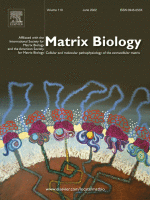Matrix Biol. 2022 May 7;S0945-053X(22)00069-5. doi: 10.1016/j.matbio.2022.05.003.
The Alternative Matrisome: alternative splicing of ECM proteins in development, homeostasis and tumor progression
Zeinab Rekad1, Valerio Izzi2, Rijuta Lamba3, Delphine Ciais1, Ellen Van Obberghen-Schilling4
Affiliations
1Université Côte d’Azur, CNRS, INSERM, iBV, Nice, France.
2Faculty of Biochemistry and Molecular Medicine, University of Oulu, FI-90014 Oulu, Finland; Faculty of Medicine, Research Unit of Biomedicine, University of Oulu, FI-90014 Oulu, Finland; Finnish Cancer Institute, 00130 Helsinki, Finland.
3Faculty of Biochemistry and Molecular Medicine, University of Oulu, FI-90014 Oulu, Finland; Faculty of Medicine, Research Unit of Biomedicine, University of Oulu, FI-90014 Oulu, Finland.
4Université Côte d’Azur, CNRS, INSERM, iBV, Nice, France.
Abstract
The extracellular matrix (ECM) is a fundamental component of the tissue of multicellular organisms that is comprised of an intricate network of multidomain proteins and associated factors, collectively known as the matrisome. The ECM creates a biophysical environment that regulates essential cellular processes such as adhesion, proliferation and migration and impacts cell fate decisions. The composition of the ECM varies across organs, developmental stages and diseases. Interestingly, most ECM genes generate transcripts that undergo extensive alternative splicing events, producing multiple protein variants from one gene thus enhancing ECM complexity and impacting matrix architecture. Extensive studies over the past several decades have linked ECM remodeling and expression of alternatively spliced ECM isoforms to cancer, and reprogramming of the alternative splicing patterns in cells has recently been proposed as a new hallmark of tumor progression. Indeed, tumor-associated alternative splicing occurs in both malignant and non-malignant cells of the tumor environment and growing evidence suggests that expression of specific ECM splicing variants could be a key step for stromal activation. In this review, we present a general overview of alternative splicing mechanisms, featuring examples of ECM components. The importance of ECM variant expression during essential physiological processes, such as tissue organization and embryonic development is discussed as well as the dysregulation of alternative splicing in cancer. The overall aim of this review is to address the complexity of the ECM by highlighting the importance of the yet-to-be-fully-characterized “alternative” matrisome in physiological and pathological states such as cancer.
PMID: 35537652
DOI: 10.1016/j.matbio.2022.05.003

